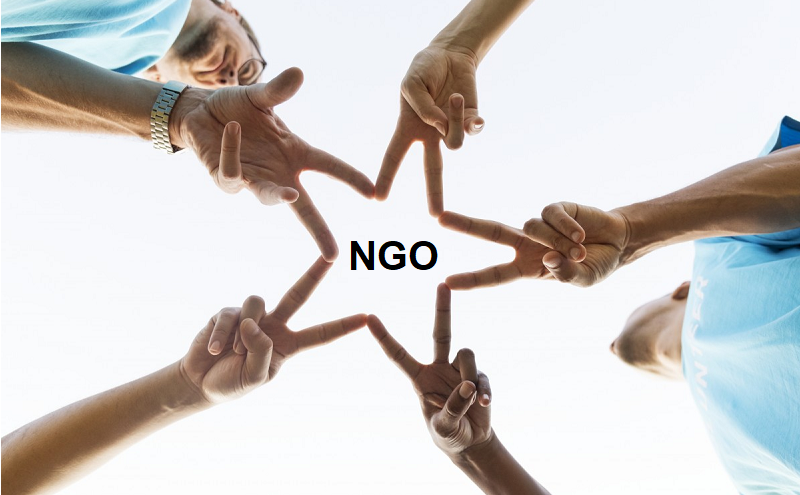
What does NGO stand for and what does it mean?
NGO stands for “Non-government organization”. In general, An NGO is any kind of organization, generally charitable, that runs independent of a federal government. NGOs can work on many levels: neighborhood, nationwide, or international.
Origin of NGOs
In the year 1945, after World War II ended in 1944, the United Nations was formed. India was a member even two years before its independence. UNO was the first organization to define NGOs, which were then called “non-state agencies”. Also, many citizens appointed by the United Nations Association of Member States have defined NGOs as “any private organization that is independent of government control if those organizations are non-profit and non-criminal, non-commercial and non-party aligned, in any parliament or state assembly.”
Why are NGOs needed?
What special roles do NGOs serve that federal government help organizations and firms do not?
This type of organization is not part of government bodies or any conventional for-profit business entities such as companies or other businesses. It is organized by ordinary citizens with the motive of safeguarding the environment, as well as human and animal rights.
What do NGOs do?
There are several NGOs that are working on global humanitarian concerns. Ideally, NGOs can adapt quickly as well as react to changing requirements quicker than government organizations which call for executive and also selecting authorization for action. The Global Journal published a listing of the top 100 most efficient and significant NGOs, recognizing famous teams such as OxFam, PATH, and also Medicins Sans Frontiers. These teams’ praise originates from the efficient and constant distribution of critically crucial solutions such as healthcare, environmental education and learning and also advocacy, as well as human legal rights security.
Their operations are highly dependent on how they understand the motive of ‘Social Orientation’, as well as their specific field and manner of working. These operations include environmental rights, human rights, and other specific tasks related to the development of society. This involves them at various levels of governing including the local, regional, national, and even international levels.
How are NGOs funded?
This type of organization is usually funded by donor effort. Funding can be provided for government departments, or even by established companies as a part of their CSR effort and of course, by volunteers.
Due to the fact that NGO funding generally originates from developed countries, a particularly effective design for NGOs consists of using neighborhood in-country personnel to plan and also implement programs on the ground while collaborating with a worldwide board concentrated on fundraising, outreach, as well as tactical group preparation.
At what scale do NGOs operate in?
NGOs are diverse groups and are always involved in a wide and diverse range of activities. Some of them work with charities and others are registered to avail benefits of tax exemption in the right of social service. Other organizations that share similarities with NGOs belong to religious, political, or other groups.
Criticism of NGOs
NGOs are diverse in their operations and manner of operations. So naturally, some NGOs face extreme criticism for the absence of transparency in budgeting or effective activity. When donating cash or searching for operating in the NGO globe, it is important to do your research and study about the team’s budget plan, their management expenses and also how much goes straight to the cause you care about. The internet site Charity Navigator is a valuable source for this.
One essential review of NGOs is that all too frequently organizations staffed with Americans and Europeans enter developing countries with actionable strategies that do not end and fit the local context up adversely impacting their target populaces. This, however, is not a fundamental flaw of NGOs however rather a sign and symptom of failing to recognize the significance of local competence within the NGO framework.
NGOs and Politics
It would certainly be not true to declare that NGOs are immune to political influence just due to the fact that they are not directly connected to federal governments; NGOs’ financing and also day-to-day procedures are subject to political approval.
For instance, NGOs working to bring amnesty to political refugees will commonly face intense political adversity and even physical violence during their in-country job. Unlike government organizations, NGOs normally have extra adaptability to resist a political status quo to pursue what they believe to be an important social adjustment.
NGOs in India
India has so far about 2.25 million NGOs registered. These NGOs are involved in several activities, so it is difficult to indicate this term as a complete set.
Conclusion
With only slightly more specificity, an NGO is an organization, typically charitable, that runs separately from a government. Contrary to common usage, the NGO title does not always imply the organization functions abroad; NGOs can be local, national, or worldwide.
When giving away cash or looking for a job in the NGO world, it is constantly vital to do your study about exactly how much of the group’s spending plan goes to administrative costs as well as how much goes straight to the cause you care around.